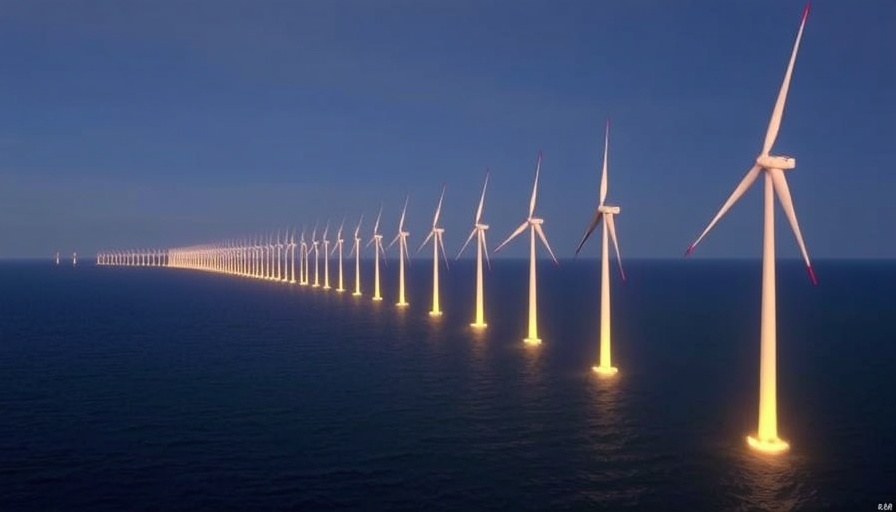
Trump's Latest Move: A Blow to Offshore Wind Energy
Recent developments in the ongoing struggle for renewable energy in America have reached a boiling point, particularly for the states of Rhode Island and Connecticut. Both states have pledged to challenge a sudden stop-work order issued by the Trump administration on the nearly complete Revolution Wind project. This project, designed to power 350,000 homes, is seen as a critical step in their climate goals and sustainability efforts.
The Importance of Revolution Wind for Local Communities
Offshore wind energy has gradually become a significant aspect of the United States’ energy landscape. In regions like New England, where it can be harnessed effectively, the benefits are not only environmental but also economic. The Revolution Wind project, projected to be operational next year, would provide substantial energy output and job opportunities. The political tug-of-war surrounding it reflects an ongoing battle over energy policy priorities.
Legal and Political Context: The Pushback Against the Administration
Rhode Island's governor, Dan McKee, and Connecticut's governor, Ned Lamont, are gearing up for a legal fight against the BOEM's order. Their determination underscores a significant local political stance emphasizing the necessity of renewable projects to ensure energy independence while combating climate change. Both governors view this stoppage not only as an impediment to energy production but as an assertion of political influence over sustainable practices.
Dissecting the National Security Concerns
The BOEM’s justification for halting the project comes down to national security interests, yet the precise reasons remain murky. This lack of clarity raises eyebrows in the environmental community, especially as it comes on the heels of Trump's ties to oil industry campaigns for regulatory changes. Critics, including Senator Chris Murphy, contend that these 'national security' claims may be smoke and mirrors for corporate interests aimed at derailing clean energy initiatives.
Understanding the Shift in Energy Policy Under Trump
Since reclaiming the presidency, Trump has consistently favored fossil fuel initiatives while curbing advancements in renewable energy. Statements declaring wind and solar power as “THE SCAM OF THE CENTURY” are not just bluster but are indicative of a larger trend that prioritizes traditional energy sectors over sustainable alternatives. Such rhetoric is worrying, particularly for investors and homebuyers who might consider eco-friendly amenities essential in future property developments.
The Broader Impact on Homebuyers and Investors
For those looking to buy, sell, or invest in properties, the ongoing debate around offshore wind energy tangentially impacts market dynamics. Homes that feature renewable energy sources or are near sustainable projects are often more appealing and may command higher prices. The turmoil caused by the halt in arable projects like Revolution Wind raises questions about the long-term value of such properties amidst shifting energy policies. Homebuyers aware of sustainable practices as a market differentiator may find themselves navigating complex landscapes influenced by the political actions of the day.
What Lies Ahead: Future Predictions for Renewable Energy
As we move forward, the fight against the Trump administration’s cease-and-desist orders regarding renewable projects could set precedents that reshape the future of energy legislation. The future responsibility lies in balancing developmental needs with sustainability goals, particularly as climate change becomes a more pressing concern. Investment in renewable energy is expected to remain a contentious but crucial focus in the national dialogue.
In conclusion, as Rhode Island and Connecticut officials rally against the Trump administration's tactics, stakeholders at every level will need to stay informed and engaged. This fight isn't just about one wind project; it’s about the larger battle for America's energy future and the role of sustainable practices in real estate and investment sectors. Homeowners, investors, and concerned citizens should consider the implications of energy policies on their choices today and tomorrow.
 Add Row
Add Row  Add
Add 





Write A Comment